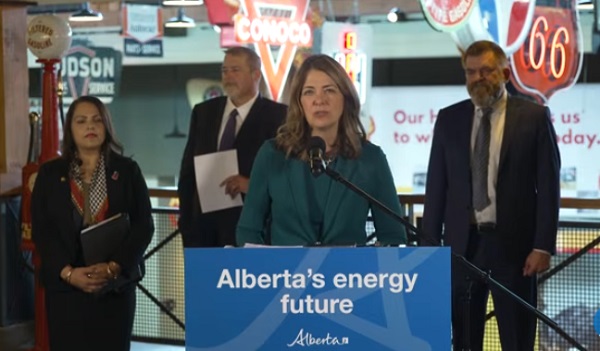Business
Democracy Watch Drops a Bomb on Parliament Hill
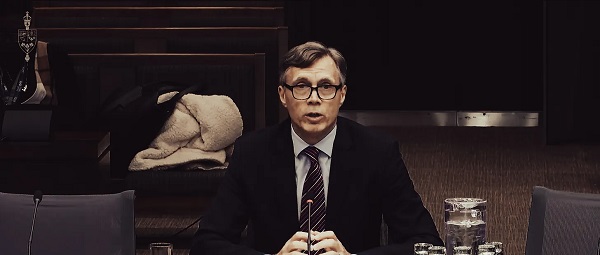
This is the Laurentian elite in action, the real swamp. And let’s stop pretending it’s a misunderstanding. It’s not. It’s a design. And it’s been rigged from day one to shield the powerful and confuse the public.
It was supposed to be a routine ethics committee meeting — another step in Parliament’s long, quiet review of the federal Conflict of Interest Act. Instead, it turned into a full-blown headache for the Liberal government.
Earlier this week, the Standing Committee on Access to Information, Privacy and Ethics (ETHI) called a single witness for its first hour: Duff Conacher, co-founder of Democracy Watch and longtime government ethics critic. That alone set tempers flaring. Liberal MPs objected to Conacher getting an entire hour to himself, arguing the time could have been shared with “other experts.” In reality, those “other experts” were expected to deliver much friendlier testimony for the government, academics who tend to describe Canada’s ethics rules as needing “tweaks,” not a total overhaul.
Conacher, by contrast, didn’t mince words. His opening statement hit Ottawa like a hammer. He called the federal Conflict of Interest Act a “sad joke,” saying it fails to regulate the people it’s supposed to, the Prime Minister, Cabinet ministers, and senior officials. Conflicts of interest, he said, aren’t occasional or accidental; they’re baked into how Ottawa works, and the law “neither prevents nor penalizes them in any meaningful way.”
He detailed how the system’s supposed safeguards actually work as escape hatches. The two big culprits: “ethics screens” and “blind trusts.” Ethics screens, he said, are an administrative fiction created and managed inside government to hide, not prevent, conflicts. Officials can quietly “step aside” from files without the public ever knowing, and sometimes don’t step aside at all.
Blind trusts, Conacher said, are not truly blind. Office-holders know exactly what assets they’ve placed there, can receive updates from trustees, and in many cases keep key holdings outside the trust entirely.
He told MPs this setup becomes most absurd at the very top, the Prime Minister’s Office. Cabinet-level decisions are routinely labeled as being of “general application” (affecting everyone), which means they’re automatically exempt from the Act’s restrictions, even when they clearly have direct financial consequences for the officeholder. “The higher you go,” Conacher said, “the easier it is to claim you’re exempt.”
He then pushed for real transparency, public logs showing who officials meet with, what files they handle, and when they actually recuse themselves. If that data were made public, Conacher said, Canadians would discover that even when officials have financial conflicts, they still participate in government decisions “the vast majority of the time.”
Finally, he outlined what a functional ethics regime would look like:
- Close the “general application” loophole.
- Make ethics screens public and detailed.
- Scrap blind trusts for top roles and require divestment (with tax fairness for those who sell assets to serve).
- Impose real penalties and enforcement… not polite advice after the fact.
Conacher ended by telling the committee it’s time for action, not handwringing. “Culture follows rules with teeth,” he said, urging MPs to draw bright lines, demand disclosure, and prevent conflicts before they happen, not sweep them under the rug afterward.
Under Oath and Under Fire: MPs Probe Carney’s Conflicts and the Cracks in Canada’s Ethics Law
If Duff Conacher’s opening statement rattled Ottawa’s cage, what came next set it ablaze. Conservative MP Michael Cooper used his time to zero in on the biggest political live wire in the room, Prime Minister Mark Carney’s personal financial interests.
Cooper began by asking the question that should make any ethics commissioner nervous: what exactly is the Prime Minister invested in? He pointed out that Carney still holds “carried interest,” a performance-based bonus, tied to the Brookfield Global Transition funds he helped raise before entering politics. These are not simple mutual funds. They’re massive, complex investment vehicles owning stakes in energy, infrastructure, and transition projects across the world. The problem? The public has no idea what specific companies those funds contain. Cooper’s point was simple: if Canadians don’t know where the Prime Minister’s money is, how can they know when he’s in a conflict?
Conacher agreed. The current disclosure rules, he said, allow secret investments. The public can’t see the holdings, but the PM still can. “He knows what industries and companies are affected by his own policy decisions,” Conacher testified. “That’s the problem.”
Cooper then moved to what’s quickly becoming the most infamous phrase in Ottawa ethics law: the “general application” loophole. It’s the technical excuse that lets Cabinet ministers, and especially the Prime Minister, participate in decisions that could benefit their financial interests so long as those decisions can be described as affecting everyone. Conacher didn’t hold back: “The Act only applies one percent of the time,” he said flatly. “A real conflict is almost impossible under the way it’s written.”
Cooper shot back that nothing stops Carney from voluntarily disclosing more. Conacher agreed “he could,” he said but made clear that the PM has chosen not to.
That’s when Cooper went for the jugular: how can an ethics screen even work if the holdings that trigger the conflict are secret? Conacher didn’t flinch. He called the PM’s ethics screen a “smokescreen” — something that hides more than it reveals. He added that the screen even violates the Act’s own rule on disclosing recusals, since it keeps the public completely in the dark about when, or if, the PM steps aside. In practice, Conacher said, because of that same general-application carve-out, “the Prime Minister is participating 99 percent of the time in decisions affecting his interests.”
Cooper then questioned the screen’s independence, pointing out it’s administered by the Prime Minister’s Chief of Staff and the Clerk of the Privy Council — both appointed by Carney himself. Conacher’s reply cut to the bone: “Anyone who serves at your pleasure is not independent.” He reminded MPs that the entire screen system wasn’t even created by law — it was invented by the Ethics Commissioner. He said the Commissioner could make it fully transparent tomorrow by simply publishing every recusal in real time, which would expose how rarely the PM is actually stepping aside.
Finally, Cooper dismantled the “blind trust” talking point — the standard line every prime minister uses to claim their finances are sealed off from politics. “Blind trusts are not blind at all,” Conacher replied. “You choose your own trustee. You can give instructions. You can get updates. And you already know what you put in.”
Then came the bombshell. For Carney, Conacher said, some Brookfield holdings — the so-called ‘103 companies’ — sit outside the trust altogether. On top of that, Carney holds stock options that don’t expire until 2033. “He knows he’s in a financial conflict,” Conacher said.
By the time Cooper’s five minutes were up, the Liberal MPs across the table looked like they wanted to be anywhere else. The record now showed that the Prime Minister of Canada — a former global banker — still has multimillion-dollar ties to one of the biggest investment firms in the world. And under the current rules, he can claim it’s all perfectly legal.
Once Conservative MP Michael Cooper wrapped up his blistering cross-examination, the rest of the Ethics Committee meeting turned into something resembling a slow-motion car crash for the Liberals. Every new round of questioning circled back to the same uncomfortable truth Duff Conacher had already laid bare: the Prime Minister’s conflict-of-interest system is broken by design and everyone in Ottawa knows it.
Liberal MP Mark Leslie Church tried to change the subject by turning the discussion into a technical one. He asked Conacher why Canada has two separate ethics regimes the Conflict of Interest Act for cabinet and staff, and the Members’ Code for MPs and whether that structure makes sense. Conacher calmly explained that while other jurisdictions merge the two, the real issue isn’t structure, it’s substance. He pointed out that the Prime Minister also operates under a separate PM’s code — one that, on paper, bans even apparent conflicts of interest and has no “general application” loophole. But that code, he noted, hasn’t been re-enacted by Mark Carney. The version still online is from 2015, signed by Justin Trudeau. “Prime ministers,” Conacher said pointedly, “have not been enforcing their own rules.”
Church then tried a softer tack, quoting the Act’s preamble, the part about “encouraging experienced and competent persons to serve in government.” He suggested that Conacher’s strict divestment rules might discourage talented people from entering public life. Conacher’s reply was direct: “The purpose of this Act is to prevent conflicts of interest, not accommodate them.” If divestment made service costly, he said, the law could offer tax-neutral relief so people could cash out without penalty. The goal wasn’t to keep the rich out — it was to keep the law clean.
Then came Bloc Québécois MP Luc Thériault, who cut through the procedural language and went straight for principle. “We are here to bring ethics into politics,” he said in French, “not politics into ethics.” He agreed that the current regime is designed to tolerate conflict rather than eliminate it. Conacher concurred and said flatly that screens and trusts are gimmicks. The only real solution, he said, is divestment , sell the assets, remove the conflict, period. He pressed for full transparency on recusals, saying Canadians deserve to see when and how the Prime Minister actually steps aside.
When Thériault got another turn later in the session, he hammered the same point: how can a recusal be independent if the PM’s own Chief of Staff and Clerk are the ones running the screen? Conacher said it can’t be. Even if the PM does step back, “everyone knows what his interests are,” and those subordinates “serve at his pleasure.” He added he was surprised Carney didn’t cash out before taking office, noting that by keeping his holdings, the PM guaranteed himself a steady stream of ethics questions, a “constant drag on credibility.”
Next up was Conservative MP Gabriel Hardy, who didn’t waste time with hypotheticals. He asked point-blank whether the Prime Minister is in a financial conflict “pretty much any time” he makes a decision that affects Canadian businesses. “Yes,” Conacher replied without hesitation. Hardy then tore into the Ethics Commissioner’s leniency, noting the maximum penalty under the Act — a laughable $3,000 fine — and suggesting it’s meaningless for office-holders making hundreds of thousands of dollars a year. Conacher agreed, saying even parking laws are enforced more strictly than the rules meant to keep the Prime Minister honest. Hardy floated the idea of disgorgement — forcing officials to repay any financial gains from conflicts — and Conacher backed it, saying the Act needs penalties “with real bite.”
When Liberal MP Abdelhaw Sori took over, he tried to salvage the conversation by going academic. Could the law ever really eliminate the appearance of a conflict? Conacher said yes B.C. does it already by using a reasonable-person test to define “apparent conflict.” Sori then asked how to fix the notorious “general application” clause. Conacher’s answer: draw a hard legal line. If you have any financial interest in a decision, you don’t participate — period. The only exceptions would be for truly universal measures (like income tax changes that affect everyone equally). For those with complex assets, he reiterated: require divestment but make it tax-neutral, so people can serve without financial punishment.
Finally, Conservative MP Shuvaloy Majumdar brought the discussion full circle, back to the heart of the matter: what the Prime Minister actually knows. Majumdar walked Conacher through the so-called “blind trust.” Carney knows exactly what went in, he said, and those holdings rarely change. Conacher confirmed that even the Ethics Commissioner has admitted most trustees don’t move assets much. Majumdar noted that Carney helped raise billions in Brookfield’s funds and likely holds millions in exposure himself. Conacher agreed, adding the PM still has stock options that run until 2033, as well as a carried interest bonus tied to fund performance.
Majumdar then brought up the optics: the Prime Minister had just returned from a New York trip meeting with global investment managers, many linked to those same funds. “That’s a pretty precarious conflict,” he said. Conacher agreed, saying Canada’s system allows “major conflicts at the top levels of government” to persist under a veneer of compliance. Full disclosure would help, he said, but transparency is not a cure. “It shows the conflict,” Conacher said, “it doesn’t remove it.”
By the time the first hour was over, the damage was done. Conacher had made his case: the Conflict of Interest Act doesn’t just fail, it protects the powerful. And under it, Canada’s Prime Minister can hold multimillion-dollar stakes in a global investment firm, meet with its partners, steer economic policy, and still claim everything is perfectly ethical.
Final thoughts
So let’s just be blunt here. If you’re watching this committee and you’re not angry, you’re either on the Liberal payroll or asleep. The Conflict of Interest Act is a glorified PR stunt, and the ETHI committee just confirmed it. They brought in Duff Conacher one of the few people in Ottawa who isn’t trying to polish the furniture on the Titanic and what did the Liberals do? They squirmed. They griped. They pouted about how unfair it was that a watchdog was actually allowed to talk for more than five minutes.
Meanwhile, Mark Carney, the former global banker, is sitting on long-term stock options, carried interest, and investment ties that stretch around the world. And under this Swiss cheese ethics law, he can regulate industries he’s invested in, meet with their CEOs, shape policies that affect their bottom line and still say he’s “compliant.”
You couldn’t design a more self-serving system if you tried. It’s like asking the fox to recuse himself from guarding the henhouse and then letting him write the rules for the next guy.
And here’s the part that should make your blood boil: every one of these so-called public servants will walk away from Parliament one day with a gold-plated pension, a Rolodex of lobbyists, and a guaranteed seat on some corporate board that will pay them handsomely for doing one thing, being connected. That’s what this system rewards: not service, not honesty — but access.
You think Mark Carney’s going to struggle to find work after this? Please. Every global bank, hedge fund, and foreign multinational will be begging him to sit on their board so they can tap into Ottawa’s inner circle. He’ll cash out, smile for the cameras, and call it “public-private partnership.”
This is the Laurentian elite in action, the real swamp. And let’s stop pretending it’s a misunderstanding. It’s not. It’s a design. And it’s been rigged from day one to shield the powerful and confuse the public.
So no, the ETHI hearing wasn’t just another bureaucratic exercise. It was a window into how power actually protects itself in this country. And unless Canadians get loud, unless they demand actual penalties, mandatory divestment, real transparency, this isn’t going to stop.
It’ll just keep getting worse.
Automotive
Big Auto Wants Your Data. Trump and Congress Aren’t Having It.


From the Daily Caller News Foundation
Congress is not going to allow Big Auto to sideline consumer privacy and safety while getting subsidized massively by the federal government.
That is because, in late September, by an overwhelming vote of 50 to 1, Chairman Brett Guthrie’s (R-KY) House Energy & Commerce Committee joined the Senate Commerce, Science, and Transportation Committee in passing the AM Radio for Every Vehicle Act.
This legislation is in response to some automakers removing AM radios from new model vehicles despite pleas from America’s public safety community not to do so.
Dear Readers:
As a nonprofit, we are dependent on the generosity of our readers.
Please consider making a small donation of any amount here.
Thank you!
“They’d rather force consumers to use their infotainment devices — which collect and sell their third-party data — than protect American lives,” Corey Lewandowski, President Trump’s 2016 campaign manager and senior adviser to his 2020 and 2024 campaigns, stated.
The entirety of America’s public safety community spanning the federal, state, and local levels, insists AM radio remaining in cars is critical for protecting the nation’s emergency alerting systems. These systems rely heavily upon AM radio, the only communication method that has stayed reliably accessible during many disasters such as the Sept.11 terrorist attack and major disasters like Hurricanes Katrina, Sandy, and most recently, Helene.
Brendan Carr, the current chairman of President Trump’s FCC, nominated by President Trump, has also endorsed the AM Radio for Every Vehicle Act. In a statement, Carr said that “millions of Americans depend on the value of AM radio and the local news that AM broadcasters offer in communities across the country.” He also recounted hearing firsthand stories of Hurricane Helene victims who “could only access lifesaving information in the days following the storm by tuning into their AM radios.”
AM radio also serves another purpose that the elites in Silicon Valley and Detroit often forget: it keeps rural and working-class America connected. Millions of people outside the big cities rely on AM for local news, farm reports, weather alerts, and even community events. For many small towns, AM stations are a lifeline—far more reliable than expensive streaming services or spotty cell coverage. Pulling it out of cars is yet another way of telling Middle America: “you don’t matter.”
Of course, no good idea in Washington is safe from special interests.
Despite the broad support within Congress, the administration, and throughout the public safety and first responder communities, the bill has faced a full-court press by the musicFIRST Coalition — a group backed by the Recording Industry of America — to tank the legislation unless it is tied to unrelated music royalty reform legislation. That’s cronyism politics at its worst—holding public safety hostage to squeeze out another payday.
However, now that the AM Radio for Every Vehicle Act has passed both committees by overwhelming margins, the only stop left for the legislation is the House and Senate Floor — meaning Speaker Mike Johnson (R-LA) and House Majority Leader John Thune (R-SD) must call it up for a roll call vote.
At the heart of this fight is more than just whether a radio dial stays in your dashboard. It’s about whether Americans can trust that their safety won’t be sacrificed for corporate profit.
It’s also about data privacy. Automakers and Big Tech are eager to funnel drivers into infotainment systems that monitor every move, harvest personal information, and sell it to the highest bidder. AM radio doesn’t spy on you. It doesn’t crash when the grid goes down. It doesn’t put profit ahead of people. It just works.
For the sake of both public safety and personal freedom, Congress should make sure it stays that way.
Ken Blackwell (@KenBlackwell) is an adviser to the Family Research Council and a chair at the America First Policy Institute. He is a former Mayor of Cincinnati, Ohio, Ohio Treasurer and Secretary of State, and U.S. Ambassador to the United Nations Human Rights Commission. He is also a former member of the Trump transition team.
Business
Jobs Critic says NDP government lied to British Columbians and sold out Canadian workers in billion dollar Chinese ferries purchase
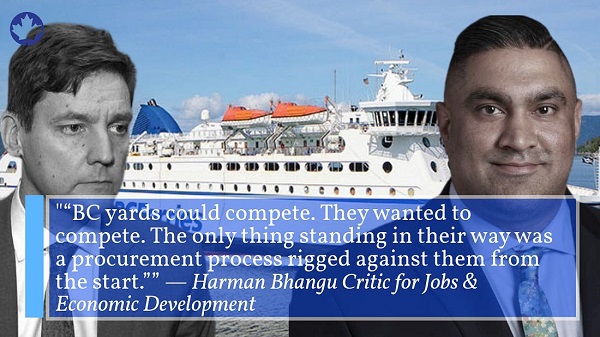
Harman Bhangu, BC Conservatives’ Critic for Jobs & Economic Development, says the leaked Seaspan report proves the NDP hid the truth about BC’s shipbuilding capacity.
On July 15, BC Conservative MLA Harman Bhangu, Opposition Critic for Transportation, warned that the BC Ferries deal with China was more than a bad contract — it was a betrayal. He said local shipyards were capable of building those vessels right here in British Columbia, and that the NDP government was selling out BC workers.
Now, the leaked Seaspan report proves he was right.
“Turns out everything I said back in July was true,” Bhangu posted on X. “The leaked Seaspan report confirms we could have built our own ferries right here at home, creating thousands of good-paying jobs for tradespeople, suppliers, and local businesses. More importantly, it would have injected billions into BC’s economy and helped rebuild our shipbuilding industry for the next generation. The NDP ignored the report, lied to workers, and lied to British Columbians. They knew the truth, buried it, and sold out BC workers anyway. That says everything.”
The report, quietly commissioned by Seaspan in 2023 and shared with government officials months before BC Ferries signed with China Merchants Industry (Weihai), outlines exactly what could have been done at home. It details how British Columbia had the capacity, the workforce, and the industrial base to build the four hybrid vessels locally. By doing so, it estimates, the province could have supported nearly 10,000 jobs, generated over $1.1 billion in local economic activity, and brought in $234 million in provincial tax revenue. Instead, those billions are now headed offshore to a Chinese state-owned yard.
Bhangu told The Opposition what he learned firsthand from shipbuilders long before the leak:
“Back in July, I visited Seaspan and spoke with people directly involved in shipbuilding here in BC. They told me that in 2021, under John Horgan, there was a shipbuilding strategy that laid out a roadmap for building vessels right here in the province, not just repairing or servicing them. But when David Eby took over, that plan was effectively buried. The focus was quietly shifted from shipbuilding to a ‘parts and repairs’ model, which meant the real economic opportunity actually constructing ships here was lost. The report that’s come out confirms exactly what I was told: BC yards could compete, they wanted to compete, and they were capable of doing the work. The only thing standing in their way was a procurement process that was rigged against them from the start.”
That’s the heart of the scandal: the NDP and the Canada Infrastructure Bank used $1 billion in taxpayer financing to bankroll Beijing’s shipbuilding industry while telling British Columbians their own yards “lacked capacity.” They didn’t. The leaked document shows the government knew it… and buried it anyway.
Bhangu isn’t mincing words. He says this isn’t just about ferries; it’s about sovereignty. “We’ve exported jobs, tax revenue, and security to a foreign power,” he said. “And the government did it knowingly.”
The Political Fallout
Premier David Eby and the BC NDP maintain that local shipyards “lacked capacity” to deliver the four new hybrid ferries on time and on budget. But the leaked report contradicts that defense.
Bhangu and other Conservative MLAs are now calling for the full document to be made public and for an independent inquiry into how the decision was made.
As Bhangu put it, “This isn’t just about ferries — it’s about sovereignty, jobs, and honesty. The government buried the truth because it didn’t fit their narrative.”
So what do we have here? A government that knew the truth, hid the evidence, and handed over a billion taxpayer dollars to a foreign state-owned yard while pretending BC couldn’t do the job. They buried a plan that would have put thousands of our tradesmen to work and pumped billions into our own economy because the optics of standing up for BC were too inconvenient. That isn’t leadership. And if this province still means anything to the people running it, someone in Victoria should have to answer for that.
Invite your friends and earn rewards
-

 Agriculture2 days ago
Agriculture2 days ago“We Made it”: Healthy Ostriches Still Alive in Canada
-
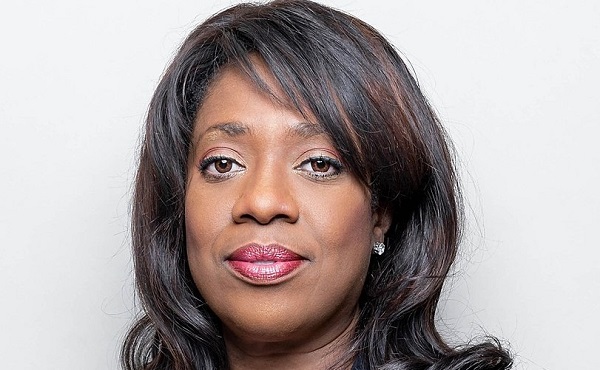
 National2 days ago
National2 days agoConservative MP Leslyn Lewis slams ‘hate speech’ bill for failing to address anti-Christian violence
-

 Business14 hours ago
Business14 hours agoJobs Critic says NDP government lied to British Columbians and sold out Canadian workers in billion dollar Chinese ferries purchase
-

 Indigenous1 day ago
Indigenous1 day agoBloodvein First Nation blockade puts public land rights at risk
-
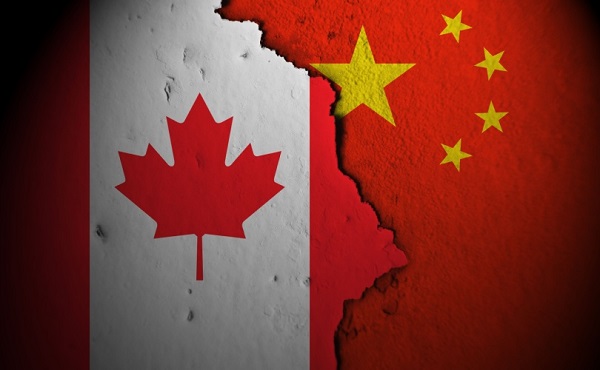
 Business2 days ago
Business2 days agoInquiry discloses Canada providing a reported $2.5 million in aid to Chinese universities
-

 Health2 days ago
Health2 days agoDisabled man needs help as hospital continues to pressure him with assisted suicide
-
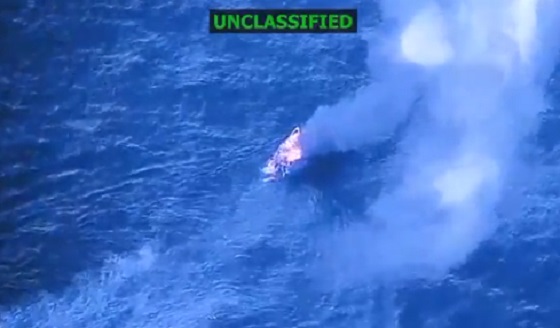
 International1 day ago
International1 day agoTrump says U.S. in ‘armed conflict’ with drug cartels in Caribbean
-

 Daily Caller2 days ago
Daily Caller2 days ago‘Special Day’: Trump Provides Big Update On Israeli Hostages





